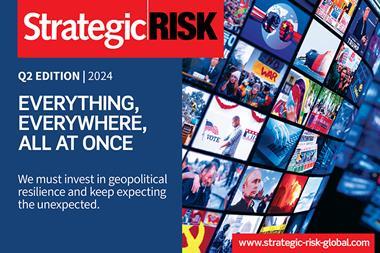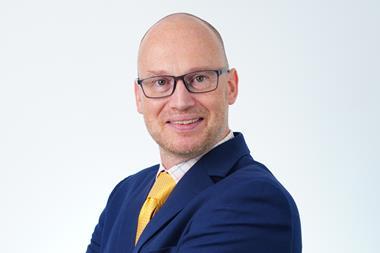Lessons learned in the aftermath of the Tianjin port explosion in 2015 will be particularly significant in Beirut, says Crawford’s Benedict Burke
Lessons learned from the 2015 Tianjin port explosion – and patience – will be essential to helping the people of Beirut rebuild after the devastating blast, according to Benedict Burke, chief client officer, Global Client Development, at Crawford & Company.
The massive explosion killed nearly 180 people on 4 August, wounded thousands and caused more than $3 billion (£2.3bn) of damage, according to officials.
Rebuilding will be a huge task – and insurance an essential component of the city’s recovery, Burke told StrategicRISK. “We know what to do, but it will take time and patience.”
Untangling complex claims
“The lessons learned in the aftermath of the Tianjin port explosion in China in 2015 will be particularly significant in Beirut,” says Burke. “Although I don’t think Beirut will be as complex. For example, there were very significant contamination issues in Tianjin – the experience we gained in China will enable us to better help the carriers, brokers and risk managers involved in the Lebanon with their response, particularly around distribution and supply chain management.”
That doesn’t mean that there won’t be significant challenges, with third-party losses expected to range across damage to vessels, equipment and property, as well as loss of life and injury, business interruption, delay, demurrage and loss of freight.
“We are anticipating that the risk mitigation measures we developed in Tianjin will reduce both the complexity of these claims and the value of losses,” says Burke. “That’s not to say that there won’t be significant and major claims, or significant and measure complexities. But in comparative terms they won’t be as dramatic as China. This may change.”
“It’s early days and I’m speaking from experience and intuition as we are still gathering information. It’s chaotic on the ground: a significant part of the city has been damaged or destroyed; there is a security situation, social unrest and COVID-19 to contend with.”
In this kind if environment, safety comes first. “Crawford & Company will not compromise the safety of our people,” says Burke. “That being said, we have some courageous people on the ground. It always amazes me how loss adjustors walk towards danger. We also have recourse to some very sophisticated remote technology and that’s a massive asset.”
Even with this broad operational capacity it can be hard to gain access to the key individuals best placed to talk in an informed way about businesses and the challenges they face.
“Quite simply, they may be in shock,” says Burke. “They may be understandably preoccupied by looking after their families. They may feel insurance can wait, for now. And in this sense complexity is not the problem, it’s time.”
Even when staff do talk to the insured they are faced with untangling the complexities of the local insurance market. “We have to work with local insurers, without necessarily having access to the master wordings or the master programmes,” says Burke.
This means dealing with local cedents with local policies, with different terms and conditions, and different limits and coverage, that all need to be understood in order to get a sense of the potential overall exposure between cedent and re insurer. And that takes a lot of time.
The firm has already put together a major incident response team with in-house capability, partners locally, a Dubai response hub and global client incident co-ordination from London.
“Whenever we talk about events like this it’s important to remember that this is first and foremost a huge humanitarian issue for the people of Lebanon, and that this is the most important thing,” says Burke. “And it’s because of this that the effectiveness of our response is crucial.”
First on the scene
Although access to the port is still severely limited, Crawford is co-ordinating a loss response through its Dubai hub and through its head of marine in London, backed by several hundred Crawford Global Technical Services (GTS) adjusters and a seven-strong desktop marine TPA team with many years of experience managing marine liability claims on behalf of London market insurers. These teams are supported by two qualified International marine solicitors.
It is crucial for Crawford to understand the mitigation methods deployed by the insured, which may well include the use of alternate ports or triggering different suppliers, explains Burke.
“What you sometimes find in this type of catastrophe is that the business interruption claim is actually more significant than the original physical damage claim,” he says.
“It’s vital to understand the extent to which their cat plans are resilient. How much is insured? And how much isn’t? Either because there was no cover, or the limits were set too low? There is still a lot to discover.
“But this is what we do. And despite the challenges we will be working with this community and helping them recover and rebuild for many months yet.”




















No comments yet